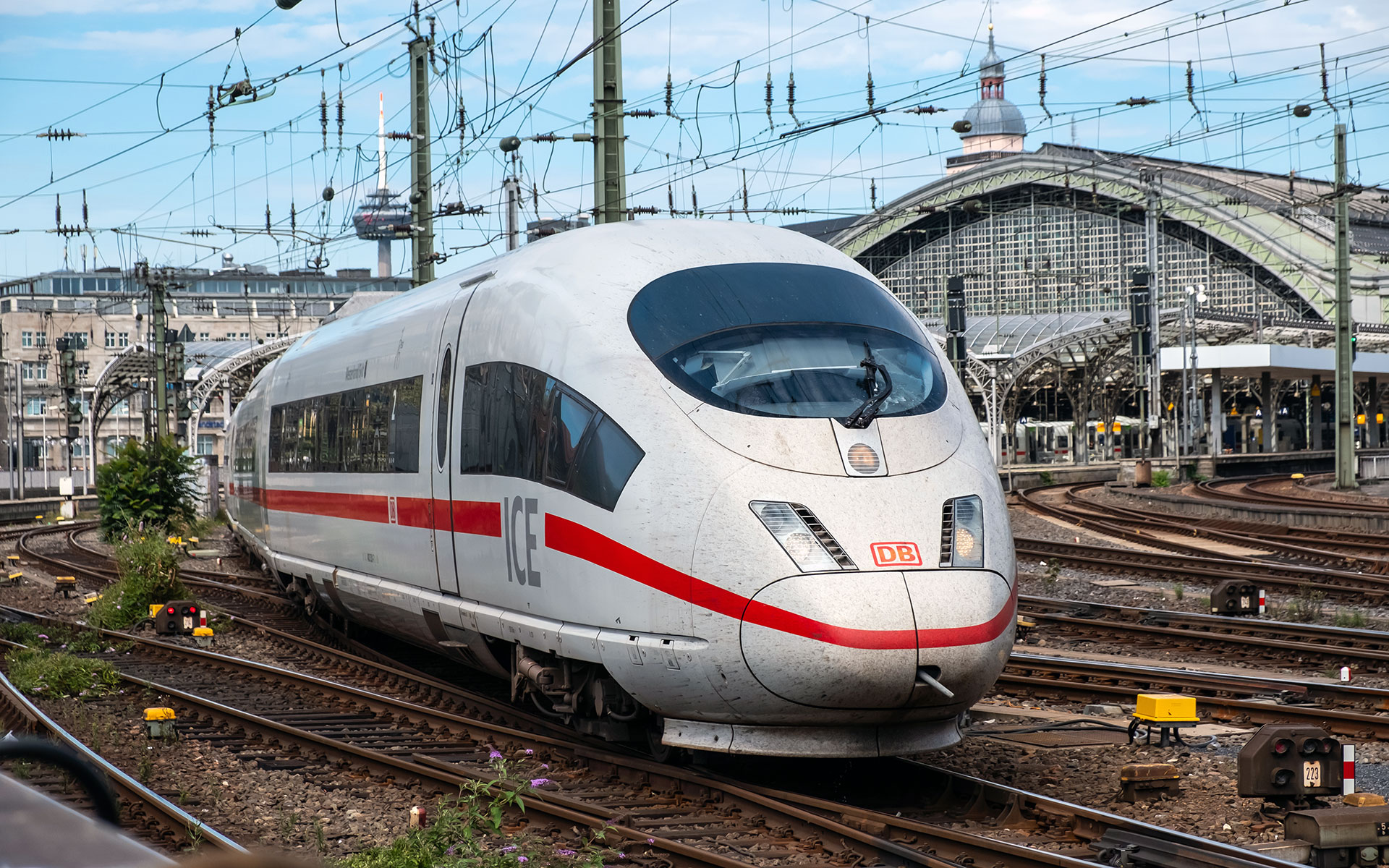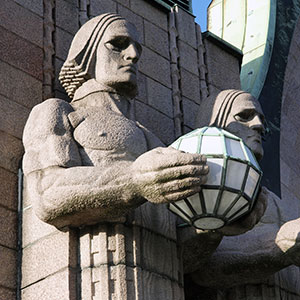Deutsche Bahn opens bookings for 2022
A Deutsche Bahn ICE leaving Cologne station. The city on the Rhine will see faster connections to both Berlin and Munich in the 2022 timetables (photo © Andrea La Corte / dreamstime.com).
Mark the date! In the early hours of this coming Wednesday – that’s 13 October – Deutsche Bahn (DB) will unveil most of its timetables for 2022 and open bookings for the new timetable year. Confusingly, timetable years don’t actually coincide with calendar years. The 2022 timetable year starts on Sunday 12 December (and runs through to mid-December 2022). When bookings open on 13 October, it will be possible to book German domestic services right through to April 2022. So with the release of these tickets, DB reverts to its regular six-month horizon for advance booking.
Here’s a sneak preview of what to expect in the new schedules. Our focus here is mainly on German domestic train services, and we make only brief reference to international connections. Many international trains will also go on sale on Wednesday 13 October, but not all of them. DB needs to liaise with partner operators in other countries, so it may take till later in the autumn before the full range of international trains to, from and across Germany are released for sale.
The accent in the 2022 rail schedules for Germany is on speed, connectivity and comfort. Let’s look at each of those three in turn.
Speed
Headline times on some key business routes are cut. The headline time is that of the fastest train of the day; it could well be that some trains on the same route, even the great majority of services, take significantly longer.
So the 2022 schedules will see a headline time of under four hours for new ICE Sprinter services on the business routes from Cologne to both Berlin and Munich. DB clearly sees four hours as the threshold below which there is ample potential for encouraging modal shift in the business market, ie. getting business travellers to shift from plane to train. These faster timings are achieved by trimming intermediate stops, so from 12 December you’ll be able to travel non-stop in ICE comfort from Cologne to Berlin.
Connectivity
With the December timetable change we’ll see entirely new routings in the German rail schedules. Lines which hitherto have been poorly served by long-distance trains will get a boost. Bremerhaven and Lübeck get new direct daily trains to the Rhine-Ruhr area.
The Sauerland region will be linked into DB’s long-distance network with a brand new route with double-deck Intercity trains running every two hours from Frankfurt via Siegen and Altenhundem to Dortmund. Some trains will extend north to Münster with one service each day running right through to the port of Norddeich, from where there are onward ferry connections to the East Frisian Islands.
Some connections which have hitherto been only seasonal, or limited to peak travel days, will now run daily. So the Elbe Valley communities of Magdeburg and Stendal will get a daily Intercity to Rostock and Warnemünde. In similar vein, there will from December be a direct daily ICE from Cologne, Bielefeld and Hannover via Berlin to Pasewalk and Greifswald. The train will continue beyond Greifswald to Stralsund and Binz (on the island of Rügen).
Comfort
Routes which hitherto relied upon legacy Intercity carriages will be upgraded to the much newer IC2 trains and in some cases to ICEs. So ICEs will now feature on some direct trains from Dresden to both Berlin and Hamburg.
Passengers will from 12 December be able to travel in Railjet comfort from Frankfurt-am-Main to the shores of Lake Constance. Credit should go to Austrian operator ÖBB for pioneering this new daily service from Frankfurt and Heidelberg to Friedrichshafen, Lindau and Bregenz. The train will continue via the Arlberg route to Vienna.
Some of the existing slower trains between Berlin and the Rhine-Ruhr area which have hitherto relied on older Intercity stock will be upgraded to ICEs.
Further afield
We’ll look more closely at international connections in a future post here on European Rail News & Notes. But we should just make a quick mention that Germany gets a new daytime connection to the Ukrainian frontier, with the extension of the existing Eurocity Berlin to Kraków train service east to Przemyśl in south-east Poland. There will also be a new overnight service from Amsterdam to Zürich (complementing the existing direct daytime ICE from the Netherlands to Switzerland).
Expect faster trains on the Munich to Zürich main line, a route which was much improved with electrification and new trains last December, but with the new timetable will see another 30 minutes trimmed off journey times between the two cities. DB and ÖBB will see new competition from Westbahn on the busy Munich to Vienna route via Salzburg. Westbahn will offer six direct trains each day from Munich to the Austrian capital.





About The Authors
Nicky Gardner and Susanne Kries
Nicky and Susanne manage hidden europe, a Berlin-based editorial bureau that supplies text and images to media across Europe. Together they edit hidden europe magazine. Nicky and Susanne are dedicated slow travellers and the authors of the book Europe by Rail: The Definitive Guide. The 17th edition of that book was published in 2022 and reprinted in July 2023. You'll find a list of outlets that sell the book on this website.